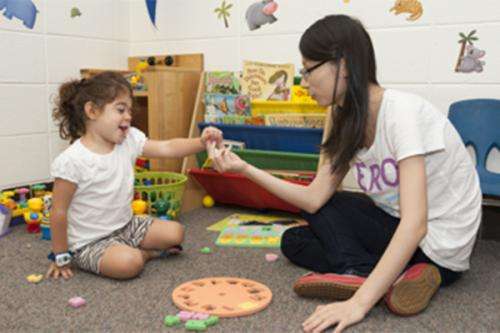How children develop language and learn through play

The Infant Language Project at the University of Delaware is working to answer questions about how children develop language and learn through play and invites members of the community to participate.
The project is directed by Roberta Golinkoff, Unidel H. Rodney Sharp Chair in the School of Education, and has studies for children as young as 4 months up to 6 years of age that explore various aspects of the language-learning process.
The project also has studies for children up to 4 years of age that investigate how children develop spatial concepts through play.
Parents and their children can be part of the research and help UD scientists understand how children take these giant leaps in development.
During a 30-minute visit to the laboratory, located in the Willard Hall Education Building on UD's Newark Campus, friendly research assistants play with children to help them feel comfortable in new surroundings. Then they present a short game or show a short movie and monitor children's eye movements.
"If it sounds fun and interesting, you're not alone—many families have been participating at the Infant Language Project for years," a representative of the project said.
More information:
To sign-up for participation, visit the website or call 302-831-2073. Prospective participants can also email the lab at udinfantlab@gmail.com with any questions.
Provided by University of Delaware